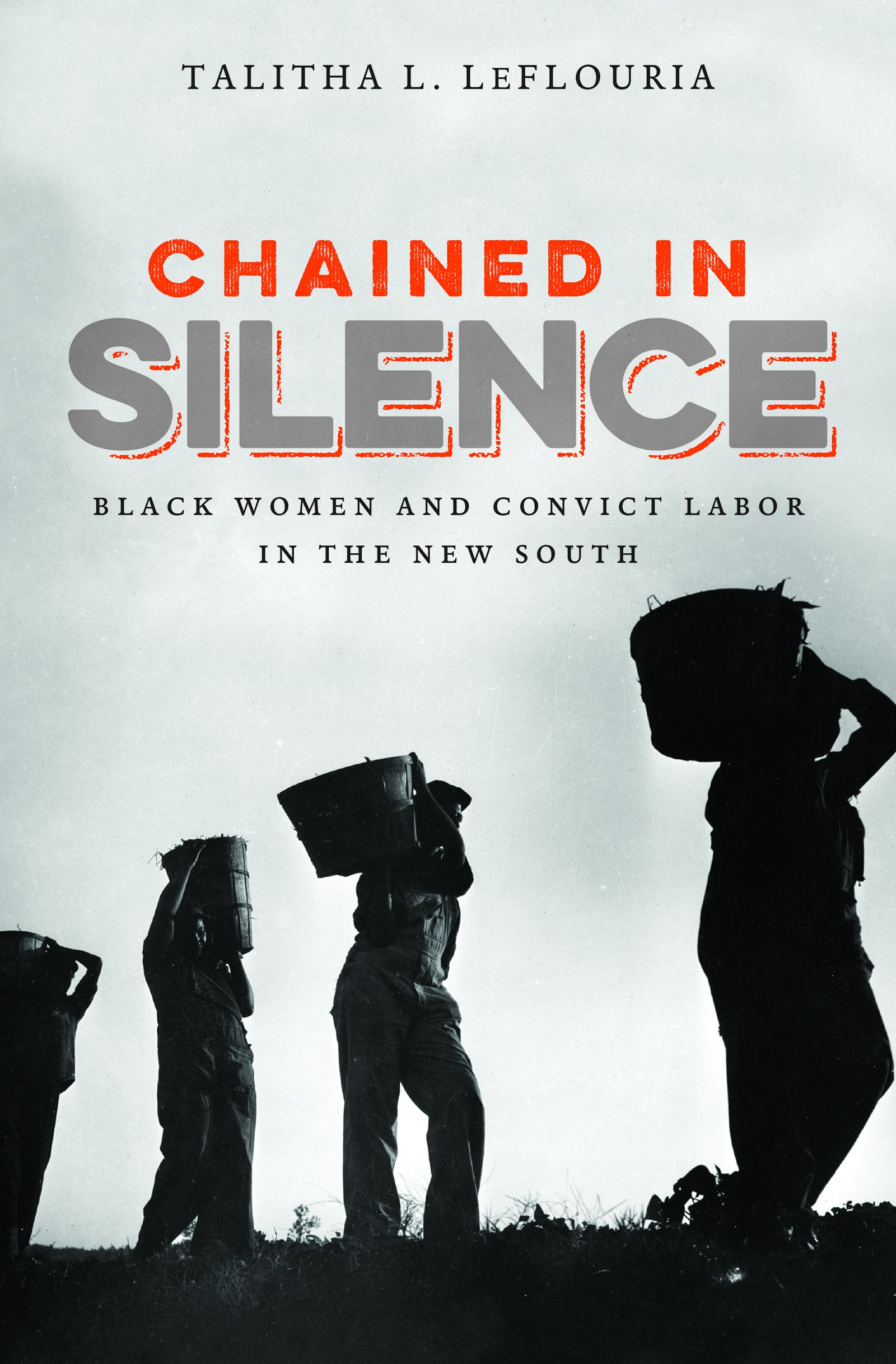We are pleased to announce that Talitha Leflouria has received awards for Chained in Silence: Black Women and Convict Labor in the New South
2016 PHILIP TAFT LABOR HISTORY AWARD for the most outstanding book on American labor history, awarded by Cornell University School of Industrial and Labor Relations and the Labor and Working-Class History Association
2016 DARLENE CLARK HINE AWARD FROM THE ORGANIZATION OF AMERICAN HISTORIANS
BLOOMINGTON, IN—During its annual meeting in Providence, Rhode Island, the Organization of American Historians (OAH) presented Talitha L. LeFlouria, University of Virginia, with their prestigious 2016Darlene Clark Hine Award, which is given annually for the best book in African American women’s and gender history.
Darlene Clark Hine Award
Chained in Silence: Black Women and Convict Labor in the New South (University of North Carolina Press). With the use of numerous multilayered methodologies, Chained in Silence deconstructs and re-creates prison life and the convict-camp experience among black Georgia women in the era of the first New South, from Emancipation to the end of World War I. Like Michelle Alexander’s The New Jim Crow, Talitha L. LeFlouria’s study employs a reformist approach to help readers understand the history of mass incarceration among African American women in the U.S. South. The real strength of the extraordinary community study, however, is its ability to provide southern African American women with multifaceted voices. These women, whose responsibilities included coal mining, steelmaking, blacksmithing, unskilled industrial work, railroading, laundering, milling, domestic service, and cotton farming, helped rebuild postwar Georgia. Often seen as invisible, even in the terrain of black convict leasing and prison life, women of African descent found themselves routinely victimized by a system predicated on social control and profit. By placing black women at the center of the early modern prison movement and New South industrial revolution, LeFlouria makes them even more impressive and salient as survivors and activists. This work is also relevant as an interdisciplinary study that borrows from and builds upon the scholarship of sociologists, criminologists, and historians in an attempt to resurrect the lives of Georgia African American women convicts. With the use of astonishing sources, including slave narratives, jail and prison records, manuscripts, sermons, women’s club records, and census data, Chained in Silence formulates a new historiographical paradigm that challenges prevailing schools of thought on the subject matter, particularly the held belief that black men alone in the convict lease and chain-gang systems principally helped shape the New South economy.
The award was presented on April 9 by OAH’s 2015–16 President Jon Butler and 2016–17 President Nancy F. Cott.
For more information, visit oah.org or call 812.855.7311.
ABOUT THE ORGANIZATION OF AMERICAN HISTORIANS
Founded in 1907, the Organization of American Historians (OAH) is the world's largest professional association dedicated to American history scholarship. With more than 7,500 members from the U.S. and abroad, OAH promotes excellence in the scholarship, teaching, and presentation of American history, encouraging wide discussion of historical questions and equitable treatment of history practitioners. It publishes the quarterly Journal of American History, the leading scholarly publication and journal of record in the field of American history for more than nine decades. It also publishes The American Historian magazine. Formerly known as the Mississippi Valley Historical Association (MVHA), the association became the OAH in 1965 to reflect a broader scope focusing on national studies of American history. The OAH national headquarters are located in the historic Raintree House on Indiana University's Bloomington campus. The house is listed on the National Register of Historic Places.
Photo:
Date:
Thursday, April 14, 2016








